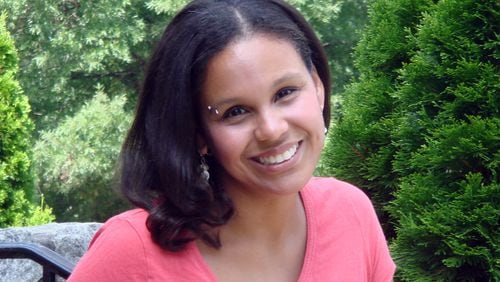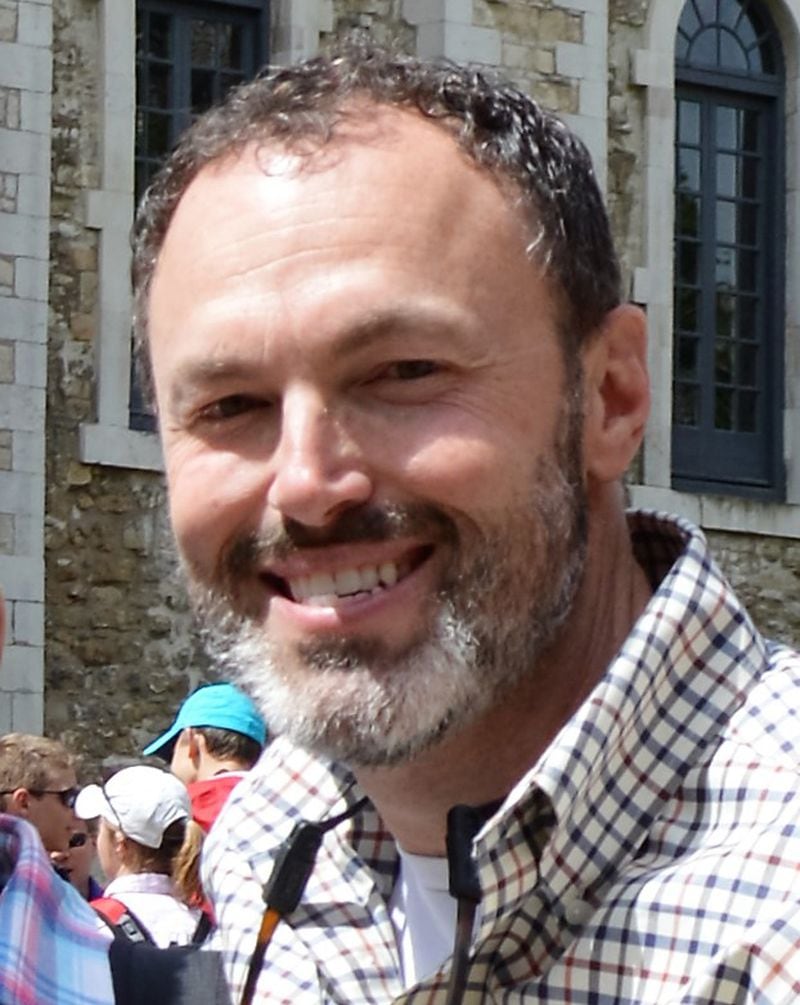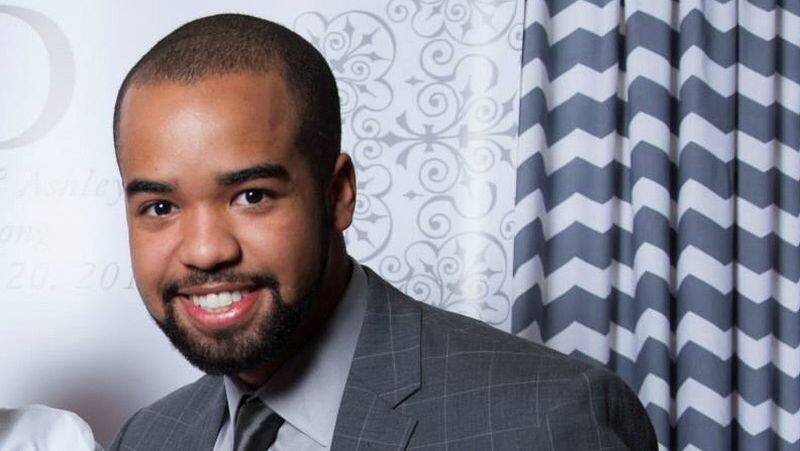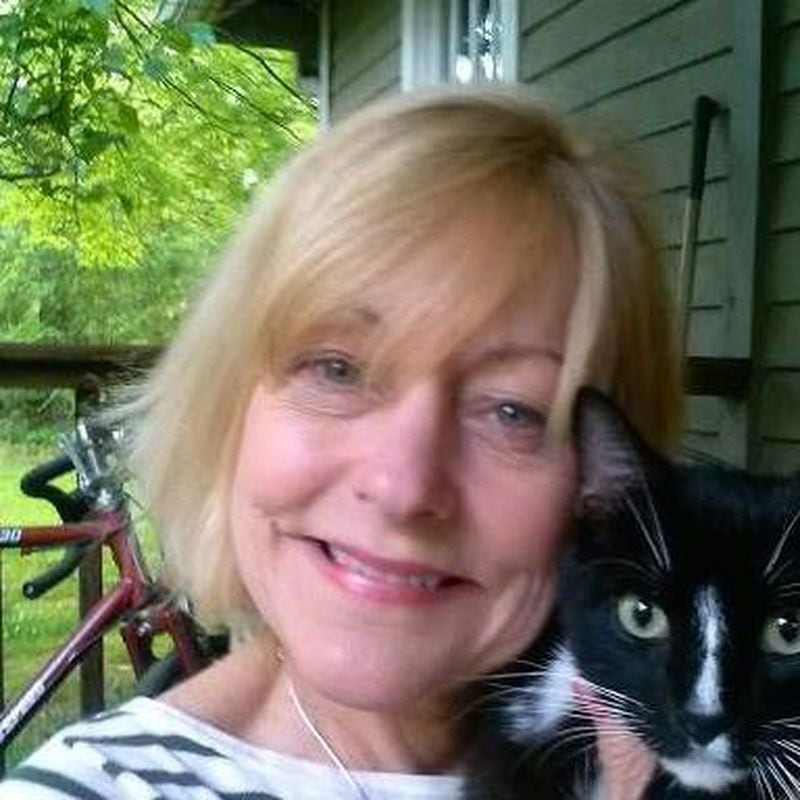This article is part of the AJC's new RE: Race reporting project, which is dedicated to covering both the tensions and the opportunities created by racial and ethnic change in Atlanta and Georgia. These authors responded to a request to readers from the AJC to talk about a time when they felt like an outsider.
She assumed I was an employee, not a shopper
Katie Acosta, Decatur
When the AJC contacted Acosta and asked her to elaborate on a brief note she sent to us, we discovered that she is a sociology professor at Georgia State University who specializes in race and ethnicity. In a phone call, Acosta spoke of race in a personal context but also in an academic one. This is an edited transcript of that conversation.
It was Christmas just this past year. My wife and I were shopping at the mall for some holiday gifts and we were in the store, looking at items of clothing on the racks. And this woman came up to us and said, “Excuse me,” and then asked me a question about the size of something in her hand. It took me a second to figure out why she was asking me. I realized she thought I worked there.
I said, “I don’t work here.”
And it was like she didn’t hear me. She just kind of kept talking, kept elaborating on what she needed. So I had to say it again louder, more forcefully, “I DON’T WORK HERE.” The woman said, “Oh, sorry” and walked away.
My wife and I gave each other this knowing look. My wife is white, and I’m not. Why do I have to be the one who gets mistaken for a store clerk? It could easily have gone the other way, but not in this woman’s mind.
Another example: my children. I get mistaken for my children’s nanny. I was picking up my son from school, and someone came up to me, very friendly, wanting to talk, trying to be nice, and presumed that I wasn’t a parent. At the time my son attended a private school, predominantly white. My son was one of the few non-white kids there.
She asked me: “Are you the nanny?” And I said, “No, I’m mom.” And she said, “I’m sorry, I guess I need to shut my big mouth.” I have a Ph.D. Why do I walk around my children’s school and have other parents think I’m a nanny?
I teach race and ethnicity to undergrad and grad students, and I have a lot of training in understanding how these misunderstandings happen. In sociology we call them micro-aggressions: when you are not a white person and you are in a white-dominated society, people will presume certain things about you, and that results in regular moments of tension and subtle hostility in your life that other people never experience.
When I teach my students about this, I teach them about white privilege. If you’re white in a white-dominated society, you don’t realize the kinds of micro-aggressions that perhaps you and others participate in, intentionally or unintentionally, that have an impact on other people’s lives.
On MARTA, a rolling racial transformation
Melton Bennett, Cumming
Taking the MARTA train from the mostly white northern suburbs down to the airport captures a cross section of the racial makeup, and divide, that exists in Atlanta.
As my fellow white passengers and I pull out of North Springs station, we add more white passengers at the next few stations as we pull toward Buckhead. As we enter the heart of the city, African-Americans begin entering the train, and at Five Points, the racial makeup of the train has flipped to predominantly African-American.
I watch as the African-American passengers entering the train look for seats next to other African-Americans, and I watch white passengers seek out other white seat mates. I see the uncomfortable looks of white people who think the black kid dressed like a gang member is going to sit next them, and then the sigh of relief as he passes by.
Mostly, it is then that I notice differences between the people who joined me at my embarkation and the people who have joined in the city. It’s not uncommon for me to watch an impromptu hip hop performance as the train treks south, a performance replete with phrases about violence, sex and race.
The language changes, with poor grammar and offensive profanity being expelled by these groups of passengers, speaking loudly to be heard by everyone, almost as if they must exhibit some cultural difference to a captive audience to make sure they are seen and heard.
The behavior can seem aggressive, with the occasional comment from one of the African-Americans, “Man, we gotta chill. These crackers don’t like that [expletive].” I absolutely feel like an outsider. There is nothing I can say. There is nothing I can do.
Inside, I want to tell them that we are all alike, that sharing constructive conversations and experiences is what builds a bridge to understanding. The hard-core profanity, the unsavory references to females and the derogatory names for white people just force the bridge to be longer.
Of course, this does not represent all African-Americans, in the city or even on the train, but this is not an uncommon experience on my MARTA journey. As I trek down the city, I see the racial differences, see the divides, hear the pain in the rap songs and conversations.
As the train crosses Auburn Avenue, I often wonder what MLK Jr would like to have experienced on the MARTA train in 2017.
Do I have to represent all black people, every day?
Khalen Morehead, Atlanta
I constantly find myself at unease, even in my own home. I live in a nice apartment in a gentrified area, but I typically dress in urban streetwear (hoodies, basketball sneakers, snapback hats, etc.).
As one of the few black people in my building, I constantly have this immense pressure to not play loud music/movies — I’ve had two noise complaints since I moved in — make too much noise or to change the way I dress because I feel like my individual actions will be perceived as stereotypes against the whole black community.
It never feels like I’m my own person, but that I’m a representative for all black people every time I step out the door. I think it’s part of a larger issue where we’re all made to feel like we have to be our own Martin Luther King, Jr., if you will.
We went into a restaurant and became invisible
Alice Brown Pickett, Atlanta
My husband and I had a gift card to a steakhouse on Piedmont Road. When we entered, we were ignored and had to ask to be seated. We were told there were no tables available at the time. There were at least four empty tables. Perhaps they were short on servers, I thought.
But what was shocking, no one even gave us a wait time or expressed concern. It was the normal time for dinner on Friday night. All of the wait staff and most of the customers were black. I could only identify one white couple. No one even offered for us to wait at the bar. A few men turned from the bar to stare at us. We decided to leave.
It was my husband’s 70th birthday. After deciding to skip Waffle House, where we knew we would be treated well, we went home and ate a bag of chips.
TELL US YOUR STORY: How has race affected you?
Note: Commenting for this feature is being moderated by AJC editors.
About the Author









